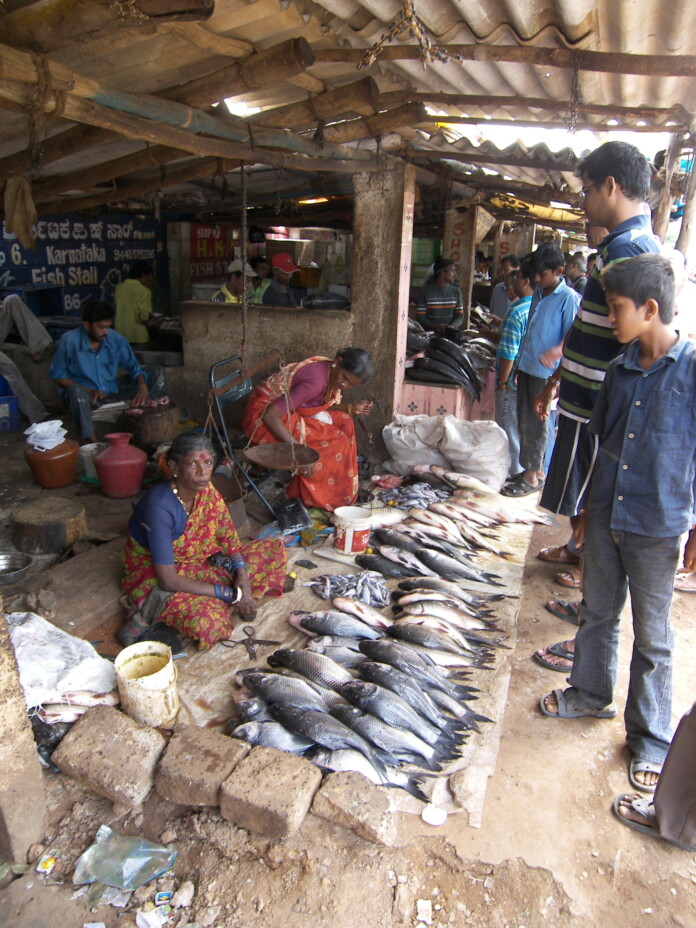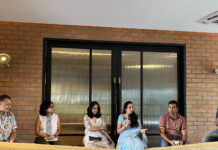Most solutions on cleaner oceans address the supply side of the fishing industry such as defining fishing zones, sustainable fishing, offshore fish farming. But the real need is to curb demand. We need global campaign against eating too much fish similar to the campaign against eating too much meat.
The war in Ukraine, inflation, and other geopolitical concerns is making nations to back pedal on their climate actions. All hope is not lost as several simple solutions to tackle our climate problems still exist. However, exercise of collective will by individual citizens of all nations of the world is the key, these solutions require very minimal investment, but come with exponential positive returns.
Crowther Labs gave birth to the idea of the “Trillion Tree” campaign. Sadhguru, the mystic from Coimbatore, started “Save the Soil” campaign. Many such campaigns are sprouting up all across the world either by individual actors or organizations. They are slowly gaining momentum and even giving rise to a new generation of startups. We now urgently need a ‘Save the Fish’ campaign. By saving our oceans, fish, soil, and trees we will save ourselves from the ravages of climate change. Two thirds of our planet is water – but we humans tend to think like the classic “frog in the well,” the frog thinks his world is limited to the boundaries of the well. Similarly, we define our boundaries as the land we live on – the concept of saving our oceans to the layman simply means not dumping plastic. While true, this is only one part of the problem – the bigger issue is that fifty percent of our coral reefs and ninety percent of our big fish have disappeared, mostly eaten according to Sylvia Earle, the world-famous marine biologist in a TED Talk.
Marine biologists agree that phytoplankton, the micro algae living on the surface of the oceans can produce fifty percent of the world’s oxygen, and absorb about forty percent of the worlds CO2. The oceans like the vegetation on terrestrial land run on a symbiotic basis – the giant whales that we love watching spew their fecal plumes to provide rich nutrients on which phytoplankton feed. In fact, it is well known that where whales exist, phytoplankton growth is exponential. A single whale is equal to about a thousand trees with regard to its CO2 capture and carbon sequestration. But sadly industrial whaling has decimated the whale population to less than one fourth of what it used to be. According to www.whales.org the pre-whaling number was 5 million. Chris Johnson of the World Wild Life Fund (WWF) believes protecting and growing whales is nature’s solution to climate change. Whales depend on fish as their food source, the fish depend on the phytoplankton for their food source. An interesting and a circular symbiosis that we do not appreciate. Essentially, we are robbing the lunch of the big fish that are only meant to help us. Phytoplankton can become a friend or a foe; wastewater dumping with its effluents or excess nutrients can create algal blooms that are toxic.
Overfishing has decimated our fish population. The world has waged a war on the fish to appease a voracious fish-eating population – sonar, radar, helicopters, spotter planes, bottom trawling, flash freezing of fish on giant boats and several other modern technologies have ravaged the seas. Old fashioned sustainable fishing methods of catching fish close to the shore are now outmoded. Fishing is now a mega billion-dollar industry. Practices like bottom trawling involve throwing away several important marine species including the lovely dolphins that are known to circle around swimmers and warn them of sharks. Cruel practices of shaving off shark fins for soup has killed many sharks.
Curb Demand for Fish
To date, most solutions have focused on addressing the supply side of the fishing industry such as various acts to protect fish, defining fishing zones, sustainable fishing, off shore fish farming and so on. But the real need is to curb the demand side of the equation which is not being addressed.
Education in climate science and true biology in the context of saving our planet is urgently needed both for children and adults all over the world. Conference of Parties (COP) has to take the leadership. Oceans and protection of all forms of marine life must rank in the top three priority areas. Also, we must continue our innovations in non-sewered toilet waste water systems such as the Omni processor type or other novel systems including marked investments in innovations in the treatment capacities of waste water treatment plants all across the world. All these measures will alleviate the amount of waste water that enters our rivers and oceans.
Most studies now indicate that animal protein is not the ideal food for human health. Chemical toxicity in fish due to waste water dumping is also of a major concern. In fact, all scientific evidence gravitates to the fact that human digestive anatomy as it relates to the tooth structure, jaw structure, length of intestinal tract, pH acid in the stomach and so on resemble that of herbivores. We suppress the facts of true science because no one wants to give up their meat.
If the slaughter industry did not exist, I surmise almost all people in the world would switch to a plant-based diet – instinctively we don’t like blood; as long as someone else does the dirty job of slaughtering, it is out of sight and out of mind. Understandably. It is hard to change habits, radical changes are not practical and should not be expected – but one can minimize fish and meat consumption. One can switch to plant-based type meat or lab grown meat alternatives.
Startups have an immense opportunity to grow fish meat in the lab and protect our planet. Lab grown fish meat will be free of toxic chemicals and would be biologically similar to the real stuff. Plus, it allows customization of fat content. Governments have to step up and subsidize such industries. Ironically, a report by the OECD states that global subsidies to the current fishing industry of USD 35 billion has also contributed to overfishing – why not shift these subsidies to the startups? Such market-based initiatives will naturally be acceptable to all stakeholders.
Smart Campaigns Simple Metrics
The most important thing the world can do is to start a campaign to save our marine life. Campaigns sometimes fail if we don’t test market the messaging properly. NGOs and individual actors can learn a lot by employing business skills used by the private sector or the advertising firms. Campaigns propel businesses to act and capitalize on new opportunities, they educate people on the importance of fish, coral reefs, reasons for ocean acidification, etc. Oceans like soil and trees are a great carbon sink, but biology lessons in schools don’t teach us why they are considered carbon sinks. Whole systems thinking is absent in almost all subjects – a case study type approach needs experimentation.
We need to dismantle archaic concepts such as GDP. We only manage what we measure – let us measure our ocean quality by the number of diverse small and big fish per square mile, our soil by its soil organic carbon, our air by its CO2 parts per million, and our energy by its share of carbon free emission technologies. Having such simple metrics will definitely influence behavior at the individual level – this is the essence of economics. Climate scientists and economists have to come to some compromise, kicking the can down the road is no longer an option.
In conclusion, if the world could eradicate polio, small pox, contain a deadly pandemic such as COVID, we certainly can save our oceans, our soil, and our trees – the simplest natural solutions that require the will of a collective global humanity. Preventive solutions will save us from the next big calamity, we only reap what we sow.
Ram Ramprasad worked as a Global Marketing Director for a Fortune 100 company. He has a graduate degree from Yale University, USA, and Madras University, India.
Africa’s Great Blue Wall Initiative
https://www.weforum.org/agenda/2023/04/oceans-great-blue-wall-initiative/
Restoring Seabird Populations Can Help Repair the Climate
The number of ocean-going birds has declined 70 percent since the 1950s. New research shows how projects bringing them back can also bolster ocean ecosystems that sequester carbon.












